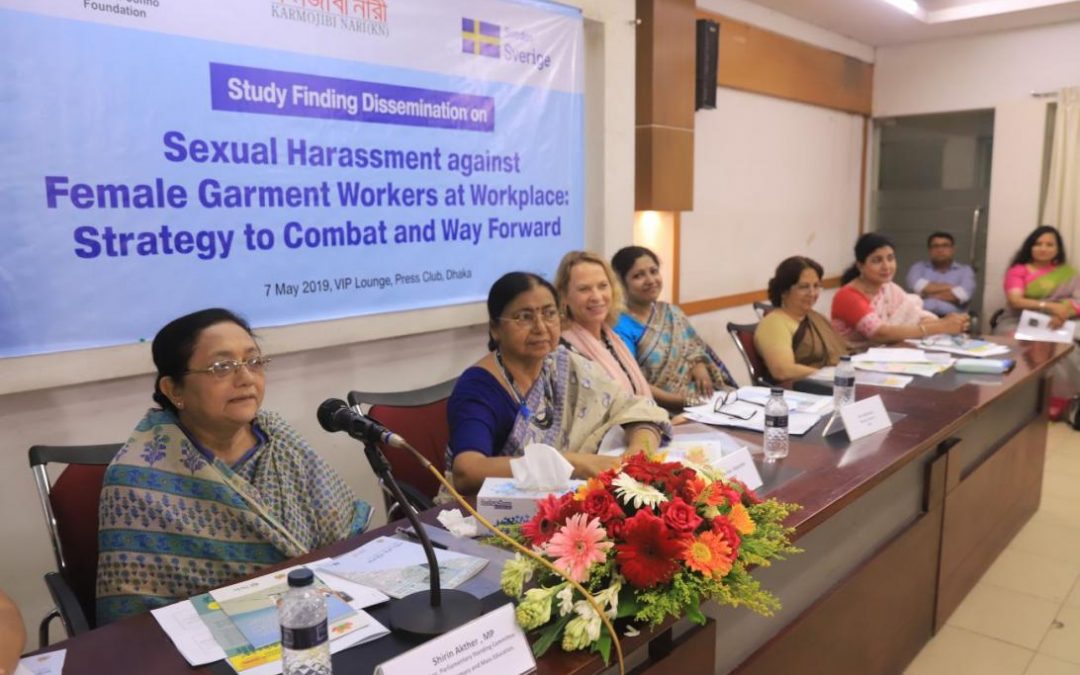Nine out of 10 factory management personnel interviewed as part of the study mentioned they never received any complaint of sexual harassment during their service periods spanning nine to 39 years.
Manusher Jonno Foundation (MJF) and Karmojibi Nari, two organisations who conducted the survey, revealed the findings in a programme at Jatiya Press Club yesterday. Swedish International Development Cooperation Agency (SIDA) supported the study.
The study, conducted based on interviews of 511 workers — 385 women and 126 men, of 22 factories in Dhaka and Chattogram, further said, “There is always a sense of fear of losing jobs if they drop any complaint… More importantly, nobody knows whether any compliant has been solved through this mechanism.”
Incidents of sexual harassment has not stopped at RMG factories as a result of absence of anti-sexual harassment committee and other good industry practices, the study said, recommending immediate implementation of the High Court directive to form anti-sexual harassment cells at all workplaces.
“Incidents of sexual harassment in factories will increase if this issue remains unaddressed,” the study said.
There is also a lack of acknowledgement by management of the RMG factories and owners’ associations that sexual harassment occurs, the study also said.
“It [sexual harassment] affects her [worker’s] mental state and overall health condition, which influence their income as well as living. On the other hand, it shows that the organisations experience losses, especially in productivity and fall in the standard of products,” the study said.
Speaking as chief guest, parliamentarian Shirin Akhter said, “There are regulations, but us women are afraid to open our mouths about harassment. We have to be aware of this and we have to encourage women to come forward.”
Kamrun Nahar, general secretary of Garment Workers Federation, attributed the lack of reports of sexual harassment to the workload, saying women workers often do not have the time to even dwell on an incident. “The harassment will continue until the inhuman workload is reduced.”
Referring to a study, Ylva Sahlstrand, second secretary of SIDA, said, “This is a global problem. We are facing the same problem in Sweden. Some 80 percent women (in Sweden) said they face sexual harassment at workplace.”
In parallel to legal framework, she also stressed to creating a sense of “valuing one another” and teaching children about sexual harassment.
In her introductory speech, MJF Executive Director Shaheen Anam said, “Things have changed [positively] over the years due to gender policy and activities of different NGOs. But due to the lack of monitoring, it is not being effective [at the desired level].”
Presided over by Karmojibi Nari President Pratima Paul Majumder, other speakers at the programme included Khondaker Golam Moazzem, research director of Center for Policy Dialogue; and Nazneen Ahmed, senior research fellow of Bangladesh Institute of Development Studies.
LinK: The Daily Star I Pdf

